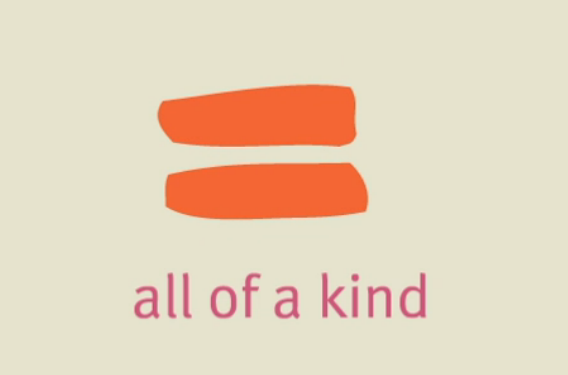
A while ago, someone asked me if I have an intellectual disability. My answer was not very conclusive because I don’t really know. I don’t know if I am intellectually disabled and I am not sure that I know what intellectual disability is.
The Arc defines intellectual disability as:
“a below-average cognitive ability with three characteristics:
- Intelligent quotient (or I.Q.) is between 70-75 or below
- Significant limitations in adaptive behaviors (the ability to adapt and carry on everyday life activities such as self-care, socializing, communicating, etc.)
- The onset of the disability occurs before age 18.”
By this definition I am definitely intellectually disabled. I was given an IQ of 25; I cannot do much by myself. Actually I need help with every single “everyday life activities”. Of course, I am Autistic, non-speaking, diagnosed at a time when autistics were thought to be “mentally retarded”.
But the definition is too broad and makes me more confused. There are so many variables in my way of processing information and turning it into action, I cannot simply say the reason is an intellectual disability, a developmental disability, side effects of seizure medications or a seizure itself.
Then there is the definition of intelligence, according to The Arc:
“Intelligence refers to general mental capability and involves the ability to reason, plan, solve problems, think abstractly, comprehend complex ideas, learn quickly, and learn from experience.”
So, I can say that I am intelligent. I can reason, plan, solve problems, think abstractly, comprehend complex ideas, learn quickly, and learn from experience. I can do all this in my head. Whether I can get my body to act in sync with my brain is another story.
My chosen method of communication is not how the majority communicates and I need support with that too. Not with my thoughts. The support I need is because my body will not follow the steps necessary and set up my AAC device independently.
There are too many ways one person can be labeled intellectually disabled, which is understood as how intelligent – or not intelligent – that person is.
But read this other definition of intelligence:
“intellectual capacity, mental capacity, intellect, mind, brain(s), IQ, brainpower, judgment, reasoning, understanding, comprehension; acumen, wit, sense, insight, perception, penetration, discernment, smartness, canniness, astuteness, intuition, acuity, cleverness, brilliance, ability; informal braininess.”
How many of these characteristics must a person have to be considered intelligent? What if a person cannot demonstrate to have some of these characteristics? Is she intellectually disabled?
How many people are considered intelligent, not intellectually disabled, “normal”, and yet are not capable of being reasonable, discerning, understanding? I know too many “normals” that fit this description.
And I am even more confused.
Maybe we should ask:
Does it matter?
Aren’t we all worthy?
The correct answers should be:
No, it does not matter.
Yes, we are all worthy.
The reality is very different.
Because the neuromajority needs labels and arbitrary classifications, we, the ones who are very different, the ones who can never pass for “normal”, are immediately otherized. “Normal” people do not want to be associated with us, “the weird looking”, “the pitiful”, “the needy”.
We are treated with scorn at one moment, just to be said to be “angels”, in the next moment.
Actually, we are just people, with all the human complexities. But we are too abnormal to be completely hated or completely accepted, embraced. We are not to be seen as whole. The general view is that we lack intelligence and insight, therefore we don’t really care if we are not heard or valued. We don’t understand.
Of course this is a flawed view. It is, sadly, the predominant view. It is also largely driven by what people see and by medical concepts of ability and disability.
I know I have many impairments and I know there is an enormous gap between what my brain absorbs and how much it is able to process at any given time. And there is another big gap between what my brain processes and what my stubborn body accepts to do.
Maybe this can be called an intellectual disability, a malfunction of my brain.
But, does it matter?
I can reason with the best among all if I am given the tools to make the connection – between my brain and my body – accessible to the majority.
I can learn about whatever I have an interest if it is at my own pace.
I can, and I do, reach out to people and argue about things I know (As long as they don’t see me and my “not normal” appearance my words seem to have more value. Once I am “out”, I am not credible enough)
I am reasonable, insightful and very nice. Not in a silly “she is such an angel” way. I am nice because I am me, abilities and disabilities included.
Does it matter?
If it does, it is only because the majority lacks understanding and willingness; the majority still fears differences; the majority dislikes being associated with what is so obviously imperfect, as they define “perfection”. And the rules of society are made by the majority.
Ironically, the majority lacks some of what can be defined as characteristics of an intellectually “normal” person. Yet they say we are the ones lacking intellectual ability.
So, does it matter?
It shouldn’t and I cannot answer the question posed to me. And I don’t really care. I know who I am and I will keep doing what I do, the best way I can, with the supports I need.
I will say this: we are all worthy and this is what matters.


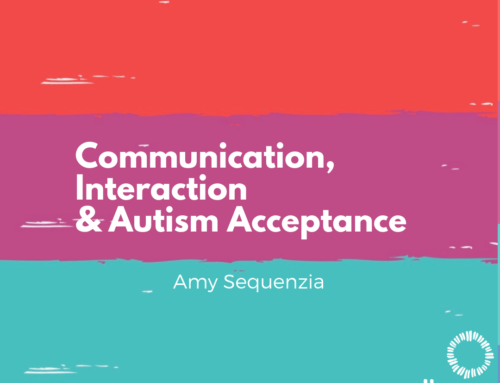
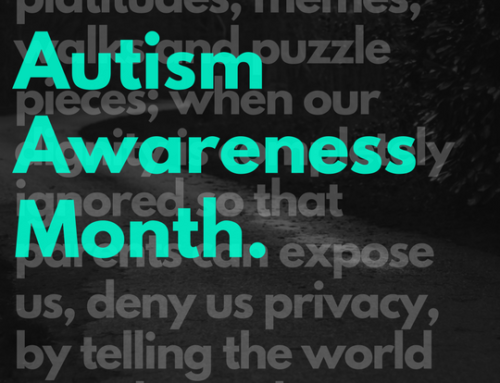
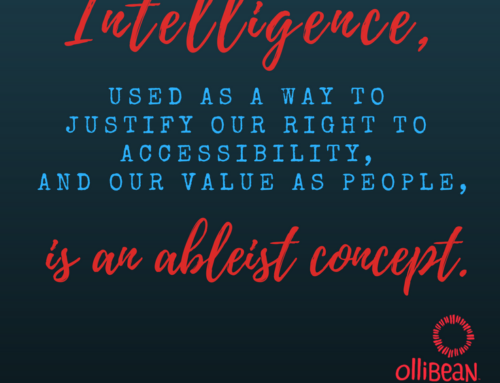
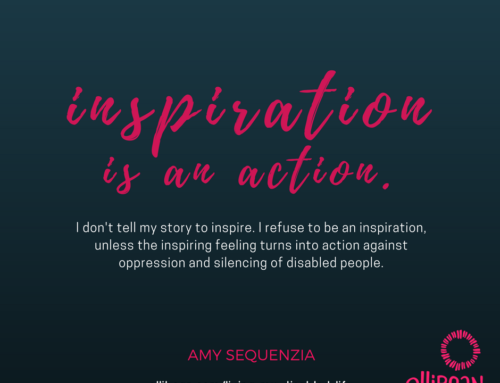

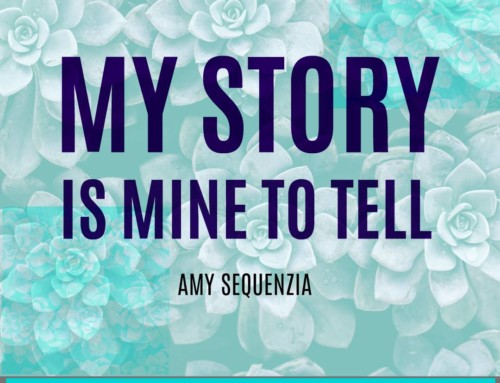
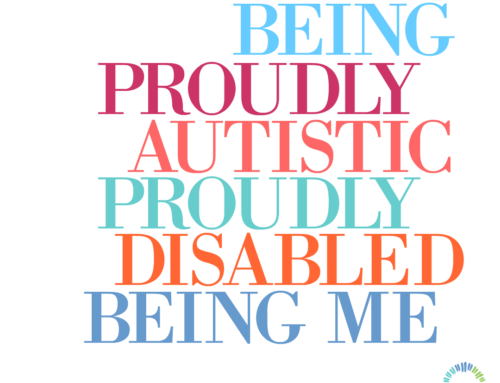
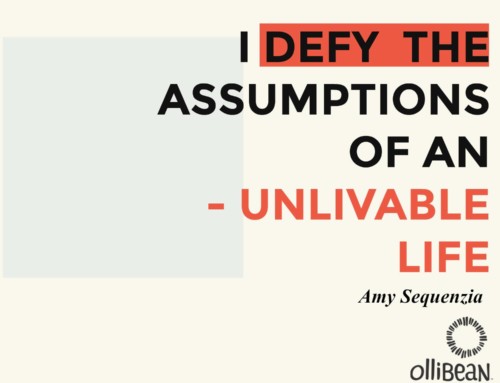
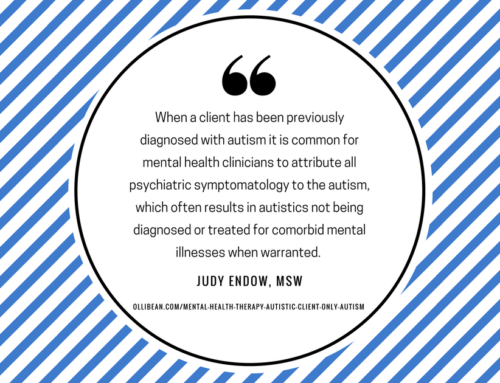
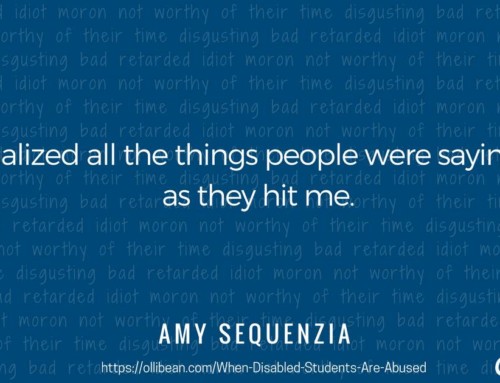

Thank you, Amy! Very well said.
What a well-written, thoughtful post on what it means to be labeled “intellectually disabled” and misconceptions others may have of folks who have been assigned such a label. I wish everyone would read it!
Thank you for sharing this @[1042087041:2048:Janice]. :)
I LOVE THIS! Thank you so much for sharing your thoughts. I have been writing some similar pieces at BLOOM — a magazine and blog on parenting kids with disabilities — about the stigma toward people with intellectual disabillities:
http://bloom-parentingkidswithdisabilities.blogspot.ca/2013/07/isnt-person-more-than-brain.html
I have a son (19) who doesn’t have autism but has a rare genetic condition, an intellectual disability and is non-verbal.
Thank you Amy! I look forward to reading more of your writing.